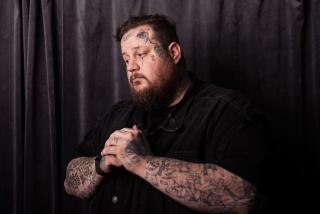Bootlegger Pardoned but Not Forgiven
- Share via
CONNELLY SPRINGS, N.C. — In his early 20s, Glen Chapman made money roaring down twisting, two-lane mountain roads running moonshine whiskey and trying to stay ahead of the law.
But his wheels weren’t fast enough. The law caught up to him, and Chapman spent time in federal prison for doing what even local law officers say was necessary in the 1950s to put food on the table.
A year ago Christmas Eve, his name was finally cleared. President Clinton granted Chapman “a full and unconditional pardon” four decades after his conviction for running moonshine from mountain stills to buyers in dry counties. The 66-year-old retired postal carrier thought the pardon would mean a clear future in his business as a bail bondsman.
That’s not always the way it works.
After a tip from his competitors, state regulators found that, before the pardon was issued, Chapman had falsely claimed he had no criminal history when he applied for his state license in 1993, and on every annual renewal since. Admitting to the convictions would have disqualified him from becoming a bail bondsman.
Chapman surrendered his license in February and turned over the business to his son.
“I didn’t fight it. I said if that’s the way it is, that’s the way it is,” he said.
“It seems like things were going real good and then it went backwards on me,” he said. “I thought a pardon was a pardon.”
Although a presidential pardon marks official forgiveness, it doesn’t necessarily clean the slate of a person’s past, said Justice Department spokeswoman Chris Watney.
“A pardon allows a person to vote. It allows a person to carry a gun and, depending on what the laws of the states are, they may have other rights that may be reinstated as well,” Watney said.
North Carolina is one of only five states that regulate an industry encompassing legal bounty hunting.
“What’s important is the [state] statute prohibits anyone from holding a license if you’ve ever been convicted of a felony,” said Fred Mohn, the deputy commissioner in the state Insurance Department who oversees bail bondsmen.
A Way of Life for the Desperate
Chapman says that when he took up bootlegging in the mid-1950s, he was 23 and struggling to feed a wife, son and daughter.
Bootlegging was a way of life for people desperate to make a buck in those days, said Kenneth Peeler, 58, of Morganton, a fellow rural postal carrier and lifelong acquaintance whom the FBI interviewed while checking out Chapman’s pardon request.
“You either worked in the sawmill or if you had a little land you could farm or you ran moonshine,” Peeler said. “There wasn’t many jobs” in the mountain hollows where both men grew up.
Chapman bought homemade liquor in the Burke County mountains for $20 a case and hauled it into neighboring Cleveland County for a $2 profit per case. Ten dollars would buy a big box of groceries back then, he said.
The day he was arrested in 1955, he had 30 cases.
The legal term for his offense was removing, possessing and concealing non-tax-paid whiskey. He was sentenced to three years’ probation.
Chapman was caught again--he says he was merely sitting in a truck while a friend sold liquor--and spent eight months in prison.
Chapman said he never kept his moonshining secret, and the FBI, which conducts background searches on everyone seeking presidential pardons, found he’d led a clean life since.
Chapman said he didn’t mention his criminal record when applying for the state bail bond license under the advice of a state inspector he knew. The theory was that the case was so old and minor that it didn’t matter.
He could apply for a new license any time, said Mohn, the deputy insurance commissioner. The pardon would be considered along with Chapman’s previous misrepresentation, he said.
Chapman says he’s thinking about it.
More to Read
Sign up for Essential California
The most important California stories and recommendations in your inbox every morning.
You may occasionally receive promotional content from the Los Angeles Times.













